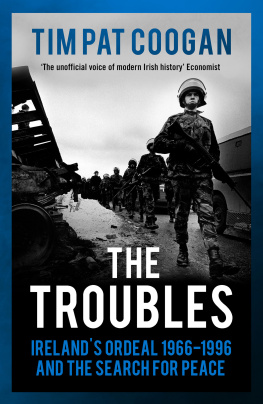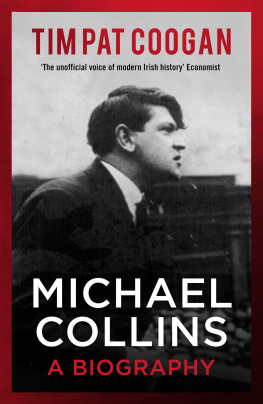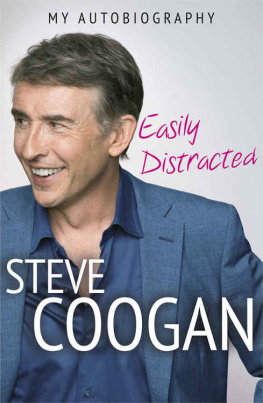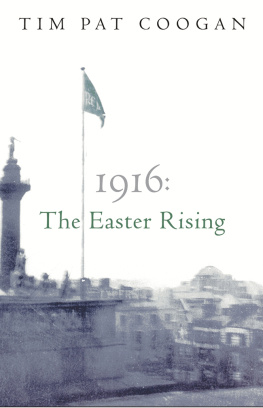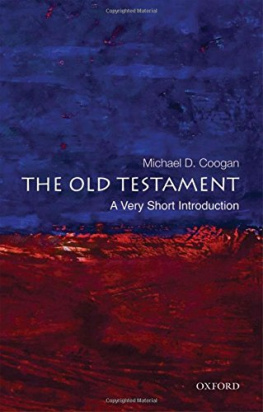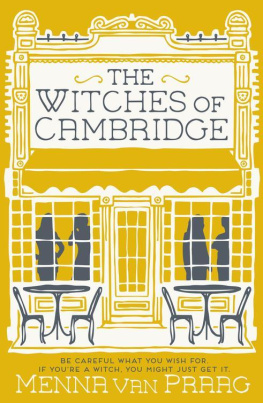

www.headofzeus.com
To all the peace-makers. In particular, to Fr Alec Reid, C.SS.R., Gerry Adams, John Hume, Jean Kennedy Smith, Senator Ted Kennedy, Niall ODowd and Albert Reynolds
Contents
It seemed that out of battle I escaped
Down some profound dull tunnel, long since scooped
Through granites which titanic wars had groined.
Yet also there encumbered sleepers groaned,
Too fast in thought or death to be bestirred.
Then, as I probed them, one sprang up, and stared
With piteous recognition in fixed eyes,
Lifting distressful hands, as if to bless.
And by his smile, I knew that sullen hall,
By his dead smile I knew we stood in Hell.
With a thousand pains that visions face was grained;
Yet no blood reached there from the upper ground,
And no guns thumped, or down the flues made moan.
Strange friend, I said, here is no cause to mourn.
None, said that other, save the undone years,
The hopelessness. Whatever hope is yours,
Was my life also; I went hunting wild
After the wildest beauty in the world,
Which lies not calm in eyes, or braided hair,
But mocks the steady running of the hour,
And if it grieves, grieves richlier than here.
For by my glee might many men have laughed,
And of my weeping something had been left,
Which must die now. I mean the truth untold,
The pity of war, the pity war distilled.
Now men will go content with what we spoiled,
Or, discontent, boil bloody, and be spilled.
They will be swift with swiftness of the tigress.
None will break ranks, though nations trek from progress.
Courage was mine, and I had mystery,
Wisdom was mine, and I had mastery:
To miss the march of this retreating world
Into vain citadels that are not walled.
Then, when much blood had clogged their chariot-wheels,
I would go up and wash them from sweet wells,
Even with truths that lie too deep for taint.
I would have poured my spirit without stint
But not through wounds; not on the cess of war.
Foreheads of men have bled where no wounds were.
I am the enemy you killed, my friend.
I knew you in this dark: for so you frowned
Yesterday through me as you jabbed and killed.
I parried; but my hands were loam and cold.
Let us sleep now
Wilfred Owen, killed in 1918 aged 25


TO WRITE ABOUT such a volatile and complex relationship as the Anglo-Irish one, and especially about its bloody spin-off in Northern Ireland, is by definition a fraught and uncertain business. But the laws of hospitality and of off-the-record briefings also contribute to a writers frustrations. Would that I were free to reveal such matters as the name of a well-known priest who once went to the IRA Army Council and asked that the IRA assassinate Paisley; or the name of the former British Secretary of State for Northern Ireland who thinks the troops should be withdrawn; to say nothing of the Irish Cabinet Minister who thought that had Brighton succeeded, it would have been greater than 1916. Such revelations go a long way towards illustrating the real attitudes of people concerned with the Troubles.
However that kind of disclosure is but peripheral to what I have been driven by my researches to conclude are the real obstacles to a guaranteed peace in Ireland. Before describing these obstacles, I freely acknowledge that any value judgement is likely to be hailed as prejudice, and any prediction may be overtaken by events. But it appeared undeniable, as this book was gestating in 1993 and early 1994, that new and hopeful thinking was making itself felt in Belfast, Dublin, London, and, significantly, in Washington. The dreamers of dreams, the men and women who substituted the vibrant Why not? in place of the mere dun Why? appeared to have won a far fierce hour and sweet. Following a communiqu of great portent issued from Downing Street by the British and Irish leaders, John Major and Albert Reynolds, on 15 December 1993, the IRA declared a ceasefire on 31 August 1994. The vision of the hopeful appeared to be underpinned when a loyalist paramilitary ceasefire followed.
Throughout Ireland, and in the media of the world, euphoria prevailed. The Berlin Wall was down, Mandela was free, perhaps the unthinkable could be thought: maybe peace was coming to Ireland too. Unprecedented images filled the mind. As the Irish Government relaxed its broadcasting ban, Gerry Adams, Martin McGuinness and other Sinn Fein spokesmen could be seen on television. Albert Reynolds, the Irish Taoiseach, received at Government Buildings two of the peace-brokers, Gerry Adams and John Hume, the leader of the Northern Irelands Constitutional Nationalist party, the SDLP. For some Republican prisoners the Republics jail gates flew open. Dublin Castle, long the symbol of oppressive British rule in Ireland, was also thrown open to a Forum on Peace and Reconciliation. Two of the fairest and most derided Irish gods, Enthusiasm and Optimism, smiled on their devotees.
But in the bowels of the gods dark counterparts, Expediency and Prejudice, resentment and resistance stirred. One expected, as a given, that the brazen-voiced and the disturbing of Northern Ireland, such as Ian Paisley, would oppose any step towards ending the strife as a sell-out, if it involved Dublin. And so indeed it proved. Both communiqu and ceasefire were denounced, loudly and continuously, as a dirty deal by Paisley and his cohorts. As readers will see for themselves in the final chapter of this book, there was in fact no deal. Multi-channelled and often conflicting currents of circumstances and personalities had flowed, or been painstakingly canalised into, a confluence.
But what few expected (apart from those infected with the virus of anti-British feeling, which is inevitably part of Britains sojourn in Ireland) was that the British Government would also become a major retarding factor in the situation. For, after concluding the Downing Street Declaration, John Majors position worsened so badly that, although his personal commitment to the Irish issue remained high, it is said that fear of the interaction between his Euro-sceptic wing and the Unionist MPs from Northern Ireland, who sit at Westminster, caused him to stall rather than advance the peace process.
The Downing Street Declaration had promised that if the violence ceased, then the way would be open for Sinn Fein to join in dialogue in due course between the Governments and the political parties on the way ahead. The promise was not kept. Instead fresh conditions were imposed, conditions which had never been mentioned either in the formal Downing Street negotiations or in the secret BritishSinn Fein talks described within. De-commissioning for example, the demand that the IRA give up their weapons in advance of talks. In marked contrast with the approach of the Dublin Government, the British did not move to free prisoners, but instead indicated that they were using them as hostages, to gain leverage in the de-commissioning argument.

